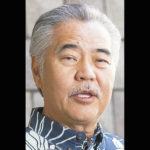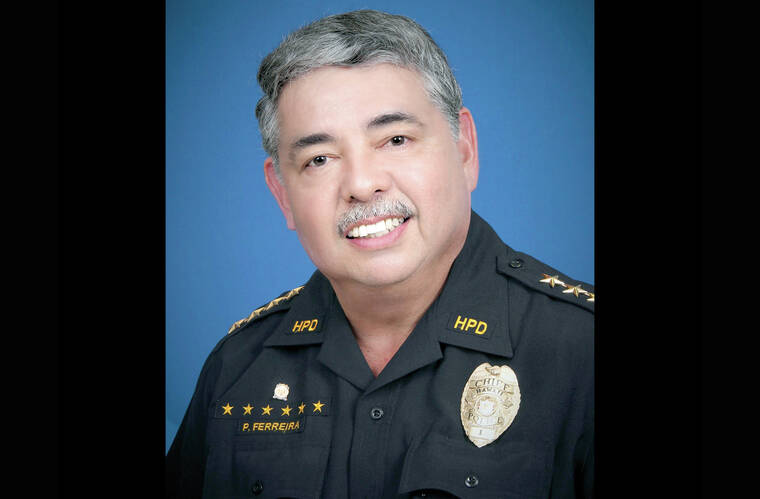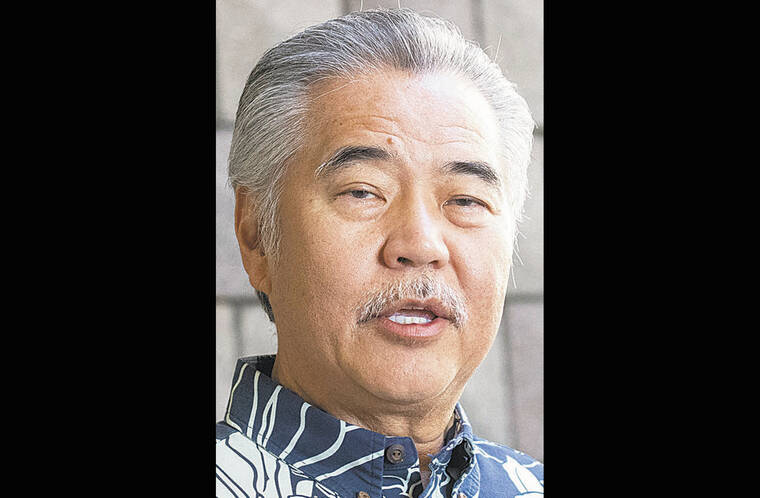Gov. David Ige earlier this month signed two bills into law that create tougher penalties for impaired drivers.
Senate Bill 2163, which became law as Act 48, increases the potential maximum prison term for a first-degree negligent homicide conviction from 10 years to 20 years for drivers who have been convicted for DUI within 15 years of the fatal collision.
The enhanced prison term also applies to drivers whose license was suspended or revoked for DUI at the time of the fatal collision, and for those who had a blood-alcohol content of 0.15% or higher.
Under the new law, sentencing judges have the discretion of imposing a lesser sentence if the court finds “strong mitigating circumstances” warranting the action. Judges are required to provide a written opinion stating the reasons for imposing the lesser sentence.
Among those providing testimony in support were the police departments and prosecutors of Honolulu, Hawaii Island and Maui, and Mothers Against Drunk Driving Hawaii.
Hawaii Police Department Chief Paul Ferreira earlier this year testified that those who drive while their licenses are suspended or revoked “show a pattern of poor decision making, leading to hazardous behavior.”
“In 2021, Hawaii County had 26 people who were killed in fatal crashes; 21 of them involved an impaired driver, which equates to one person being killed every 17 days,” Ferreira stated. “Many of the most tragic crashes involve drivers who were highly intoxicated at the time.”
Hawaii County Prosecutor Kelden Waltjen said the new law will expose defendants “to a proper level of punishment for inexcusable actions that resulted in devastating consequences.”
“The aggravating factors set forth … of a prior drunk driving conviction, driving on a license that was suspended for drunk driving and driving while intoxicated are factors that demonstrate the defendant was acting with disregard to the safety and lives of others on the road,” Waltjen testified. “These factors justify the possibility of a longer term of imprisonment.”
Kurt Kendro, a retired Honolulu Police Department major who chairs MADD’s Public Policy Committee, said Hawaii has a history of being “far too lenient” with impaired drivers who kill others on the state’s roadways.
“With convicted offenders 1.8 times more likely to be involved in a fatal crash and four times more likely to have a high blood or breath alcohol content is completely unacceptable,” Kendro said. “… These increased punishments are long overdue … .”
The second bill, SB 3615, which became law as Act 94, increases the period of driver’s license suspension for first-time DUI offenders — but also allows for early termination of a license suspension for those first-time offenders who show consistent use of an ignition interlock without any violations. Ignition interlocks are handheld breathalyzers for car ignitions that prevent users from being able to start their vehicle after consuming alcohol.
License suspensions for first-time DUI offenders are lengthened from one year to no less than a year and up to 18 months.
Drivers sentenced under the new DUI law can apply for an early termination of license suspension. To be eligible, the offender would need to document the installation and maintenance of an interlock device on all vehicles the person drove for a continuous period of nine months, plus comply with all other sentencing requirements.
Judges aren’t required to grant early termination of a license suspension under the law.
The new law has the support of the state Department of Transportation, the Honolulu and Hawaii County police departments, the Honolulu prosecutor, the Hawaii Bicycling League, and MADD Hawaii.
“We believe in holding drivers accountable for their dangerous driving behaviors, as well as educating and counseling them how driving impaired impacts our communities,” Ferreira said.
He added the department supports the opportunity for drivers to apply for early termination of their license suspension “if they have complied with all other sentencing requirements.”
Kendro called ignition interlock devices “very often the first line of defense from preventing a person who has been drinking from making a bad choice that could end in tragedy.”
“It is a known fact that ignition interlock devices save lives,” he said.
Opposing the law was the state Office of the Public Defender, which said the law “will disproportionately punish those who are economically disadvantaged.”
“Those that are able to afford ignition interlock deices will still be able to drive to work and drop their children off at school during the (suspension) period,” the Public Defender’s testimony stated. “But for people struggling to make ends meet that cannot afford an ignition interlock device … they will suffer the harsh penalty of being unable to drive for 18 months.”
Email John Burnett at jburnett@hawaiitribune-herald.com.









